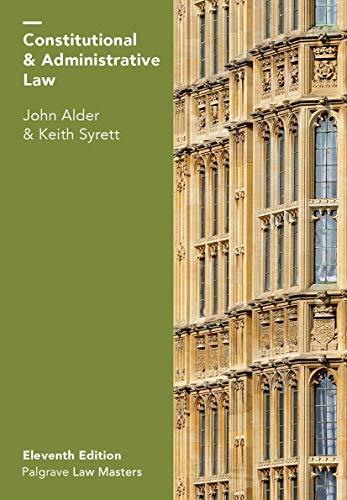Question
(No explanation needed!) 1) An agency relationship with a principal must be in writing to be effective. T/F 2) Legal contractual capacity is not required
(No explanation needed!)
1) An agency relationship with a principal must be in writing to be effective. T/F
2) Legal contractual capacity is not required to be an agent. T/F
3) Commercial agents often bear the financial risk of nonpayment by the purchaser. T/F
4) Employees are agents for their the employers T/F
5) Agents are not required to disclose any conflicts that exist with respect to their relationship with the principal T/F
6) Agents have a duty to act with ordinary care and skill common for the kind of work they are engaged to perform as agents. T/F
7) Principals have a duty to compensate agent's, reimburse and indemnify agents, and to keep accounts T/F
8) The agency/principal relationship can only be terminated by the principal T/F
9) Agents only have actual authority to act on behalf of the principal T/F
10) A principal may become liable for an agent's unauthorized acts through ratification T/F
11) Agent's are typically not liable to 3rd parties for the agreements they enter into on behalf of their principals T/F
12) Principals may be either disclosed, partially disclosed, or undisclosed. T/F
13) Principals are usually liable for the crimes or torts committed by their agents, when those acts are committed outside the scope of the agent's authority. T/F
14) Agent's may be liable to 3rd parties for the agreements they enter into on behalf of an undisclosed principal. T/F
15) In most work place situations in return for placing fault on the employer, the employee gives up the right to sue the employer pursuant to workers compensation laws T/F
16) If an employee is injured while driving to the movies on their day off, workers compensation laws will cover the losses associated with that injury T/F
17) The Occupational Safety & Health Act (OSHA) applies to all businesses that engage in interstate commerce. T/F
18) Employers have a general duty to prevent workplace hazards that may cause death or harm to workers T/F
19) The Family Medical Leave act does not provide benefits to employees for the birth and adoption of a child. T/F
20) The Equal Pay act of 1963 prohibits discrimination in pay between the genders and it does not require covered employers to pay employees of all genders equally for jobs that require equal skills, efforts of responsibility, and that are performed under similar working conditions. T/F
Step by Step Solution
There are 3 Steps involved in it
Step: 1

Get Instant Access to Expert-Tailored Solutions
See step-by-step solutions with expert insights and AI powered tools for academic success
Step: 2

Step: 3

Ace Your Homework with AI
Get the answers you need in no time with our AI-driven, step-by-step assistance
Get Started


